Disclosure: This article contains affiliate links. We may earn a commission from purchases at no extra cost to you, which helps our travel content.
There's something almost sacred about the ritual of coffee in Vienna. As I step through the heavy wooden doors of Café Central, the soft murmur of conversation and gentle clink of porcelain creates what Austrians might call a Kaffeehausgeräuschkulisse — the distinctive soundscape of a traditional coffeehouse. Having visited Vienna numerous times for both work and pleasure, I've developed a deep appreciation for how these elegant institutions serve as the beating heart of Viennese cultural life. They are neither simply restaurants nor mere cafés, but rather what locals call a zweites Wohnzimmer — a second living room — where time seems suspended between tradition and modernity. This autumn weekend, I invite you to join me on an intimate journey through Vienna's most cherished coffee sanctuaries, where centuries of history steep alongside your Melange, and where couples can find both connection and contemplation amid the marble tabletops and tufted velvet.
The Grand Dames: Café Central & Café Sacher
My love affair with Vienna's coffee culture began at Café Central, where luminaries like Freud, Trotsky, and Stefan Zweig once debated the great ideas of their time. Walking beneath its vaulted ceilings, I'm always struck by how the space balances grandeur with intimacy. The Oberkellner (head waiter) — distinguished by his formal attire and commanding presence — orchestrates the room with a dignified efficiency that feels unchanged since 1876.
My ritual here never varies: I order a Kleiner Brauner (espresso with a splash of cream) and a slice of Apfelstrudel, then settle into a window seat with my travel journal to observe the gentle theater of Viennese life. Unlike American coffee culture with its emphasis on takeaway cups and quick consumption, here coffee is served on silver trays with a glass of water, meant to be savored over hours.
A short walk away stands Café Sacher, home to the legendary Sacher-Torte. While some dismiss it as a tourist trap, I find its red damask walls and crystal chandeliers transport me to the height of Habsburg elegance. The chocolate cake itself — with its precise layer of apricot jam and shiny chocolate glaze — follows a closely guarded recipe from 1832. My translator's tip: order it mit Schlag (with whipped cream) as the locals do, and pair it with an Einspänner — black coffee in a glass topped with whipped cream, named after the one-horse carriages whose drivers needed the cream to keep their coffee warm while navigating Vienna's streets.
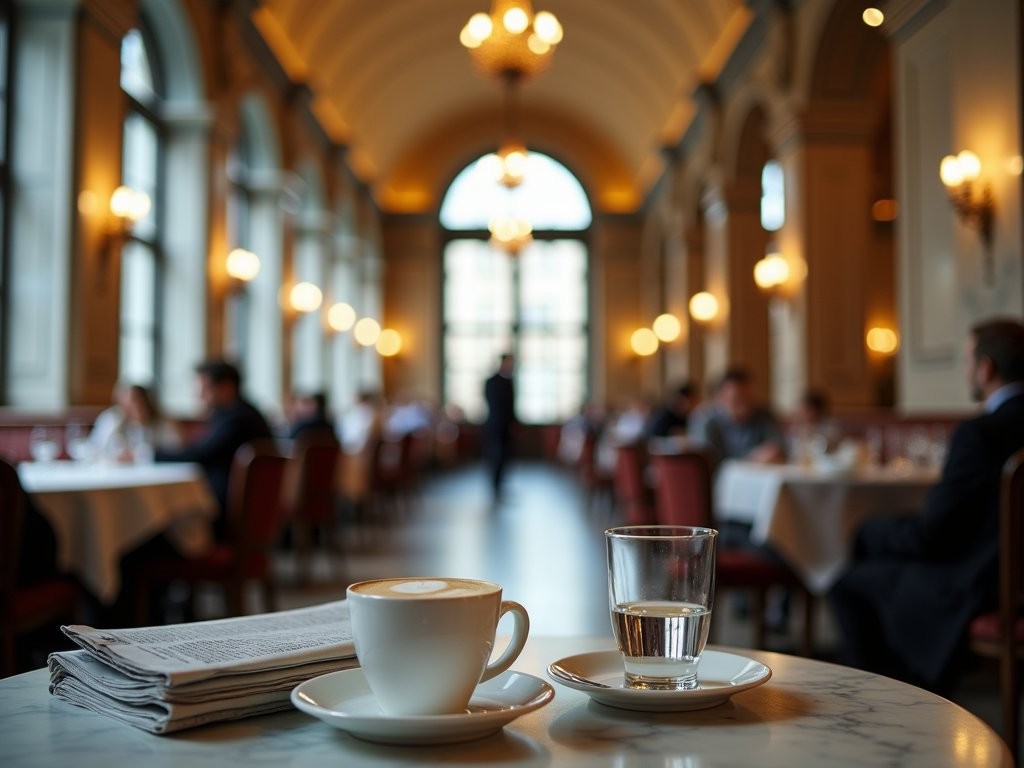
💡 Pro Tips
- Visit Café Central before 10am to avoid the tourist crowds and experience the authentic morning ritual of newspaper reading
- At Café Sacher, request a table in the back room for a more intimate experience away from the tour groups
- Most traditional cafés don't rush customers — your bill only comes when requested, so you can linger for hours over a single coffee
Literary Haunts: Café Hawelka & Café Sperl
For a more intimate glimpse into Vienna's coffee culture, I always make time for Café Hawelka, a tiny, smoke-stained institution on Dorotheergasse. Leopold and Josefine Hawelka opened their doors in 1939, and the café quickly became a nucleus for post-war literary figures and artists. Today, their grandson continues the tradition in a space that feels delightfully frozen in time.
The first time I visited Hawelka, I arrived just as they were pulling fresh Buchteln (sweet yeast buns filled with plum jam) from the oven—a specialty only available after 8pm. The scent of vanilla and yeast mingling with coffee created what the Japanese might call umami for the soul. I sat beside a bookshelf stacked with dog-eared literary journals and watched as a gray-haired man in the corner sketched patrons on a napkin, a practice I've since learned has been happening here for decades.
Equally atmospheric but less crowded is Café Sperl, which opened in 1880 and maintains much of its original furnishings. The billiard tables in the back room have witnessed countless matches between local intellectuals, while the worn leather banquettes have supported the weight of both ordinary Viennese and extraordinary artists. Here, I recommend ordering a Kapuziner (similar to a cappuccino, but with a more precise ratio of coffee to milk) and their house specialty, a rum-soaked Sperl-Schnitte cake.
As someone who translates both words and cultural contexts, I find these spaces particularly moving for how they preserve a way of being that has nearly vanished elsewhere. In our era of digital nomadism and co-working spaces, these cafés were the original remote workplaces, where the price of a coffee bought you a desk, heating, newspapers, and community for as long as you wished to stay.
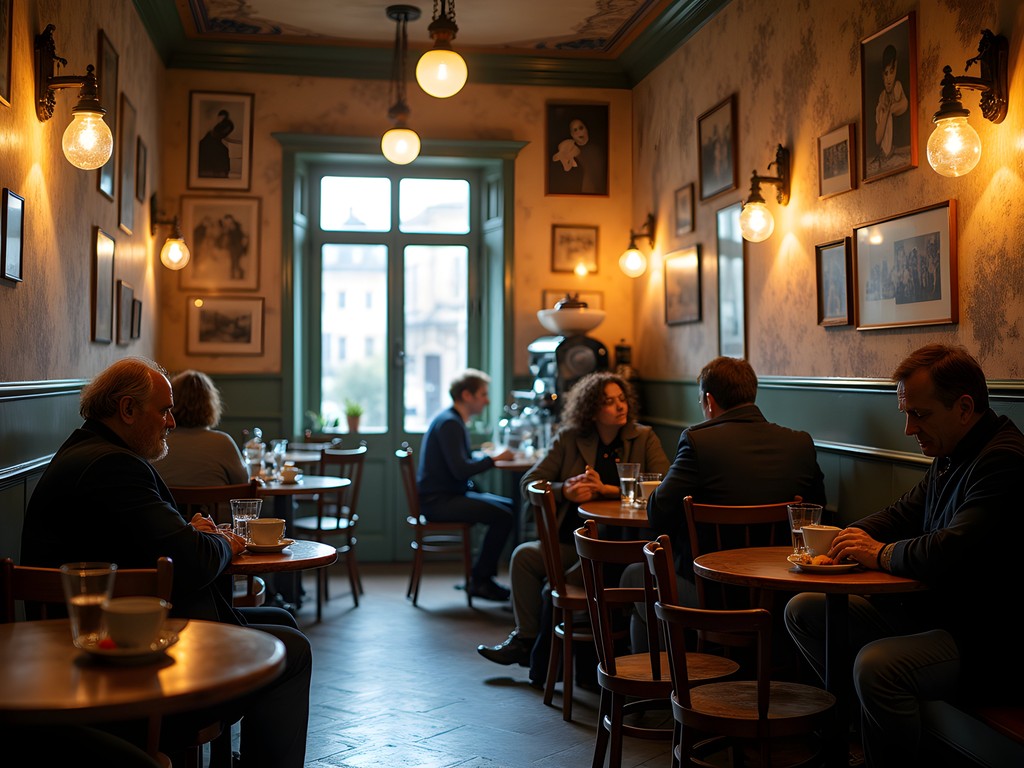
💡 Pro Tips
- Café Hawelka is one of the few places that still allows smoking in a separate section — request the non-smoking area if you're sensitive
- Bring a book or your e-reader to blend in with locals who come to read for hours
- At Sperl, look for the table in the corner that was featured in the film 'Before Sunrise' — a perfect spot for couples
Modern Classics: Café Demel & Kleines Café
While Vienna's coffee culture is deeply rooted in tradition, it continues to evolve in fascinating ways. Café Demel represents this perfect balance between preservation and innovation. Founded in 1786 as a confectionery to the Habsburg court, Demel maintains its imperial connections while embracing contemporary sensibilities.
What distinguishes Demel is its open kitchen, where you can watch white-uniformed pastry chefs craft intricate tortes and Konfekt (fine confections) behind a glass wall. I spent one rainy afternoon here with my language notebook, jotting down the specialized German vocabulary of Viennese pastry-making as I observed the precise movements of the Zuckerbäcker (confectioners).
The coffee menu at Demel features both traditional preparations and seasonal specialties. During fall visits, I recommend their pumpkin spice Melange — a Viennese take on the American favorite that predates the trend by decades, featuring house-made spice syrup and real pumpkin essence.
For a completely different experience, I always make time for Kleines Café (literally 'Small Café') in the Franziskanerplatz. True to its name, this tiny establishment founded by actor Hanno Pöschl can barely seat 20 people inside, but in fair weather, the tables spill out onto one of Vienna's most charming squares. Here, the coffee is straightforward, the atmosphere unpretentious, and the people-watching unparalleled.
What fascinates me as someone who straddles cultural boundaries is how these spaces demonstrate Gemütlichkeit — that untranslatable German concept encompassing coziness, contentment, and belonging. In a Viennese café, this quality emerges from the perfect tension between formality and comfort, between the rituals of service and the freedom to simply be.

💡 Pro Tips
- At Demel, ask for a tour of the back kitchens — they sometimes accommodate curious visitors who express genuine interest in the craft
- Visit Kleines Café in late afternoon when locals finish work and the square fills with Viennese of all ages
- When ordering at Demel, the traditional way to request your check is by saying 'Zahlen, bitte' rather than making a signing motion
Off the Beaten Path: Café Korb & Café Prückel
For couples seeking authentic Viennese coffee experiences away from the well-trodden tourist circuit, I recommend venturing to Café Korb and Café Prückel, where locals far outnumber visitors.
Café Korb, founded in 1904 with Emperor Franz Josef in attendance at its opening, maintains a fascinating dual personality. The ground floor presents an unpretentious, almost utilitarian café where elderly Viennese play cards alongside young creative types. Descend the spiral staircase, however, and you'll discover a basement that hosts avant-garde art exhibitions, poetry readings, and the occasional psychoanalytic society meeting (a nod to regular patron Sigmund Freud).
The owner, Susanne Widl—former actress, model, and cultural icon—epitomizes Viennese eccentric elegance. On my last visit, she was holding court at her regular table, dressed in a vintage Chanel suit with her signature red lipstick, discussing theater with a group of directors. The coffee here is excellent, particularly the Maria Theresia (black coffee with orange liqueur topped with whipped cream), but it's the apple strudel that draws me back—made from a recipe Susanne claims was passed down through generations of Habsburg court chefs.
A short tram ride away sits Café Prückel, a magnificent example of 1950s design that feels like walking onto a Wes Anderson film set. The mint-green upholstery, globe lighting, and bentwood furniture create a retro atmosphere that somehow never feels contrived. Piano music fills the room most afternoons, and the newspaper selection is among the most comprehensive in the city.
What makes these spaces special for couples is their perfect balance of privacy and public engagement. You can spend hours in intimate conversation while occasionally dipping into the ambient social life around you—perhaps exchanging recommendations with neighboring tables or joining in the gentle applause after a piano piece concludes.

💡 Pro Tips
- At Café Korb, check their cultural events calendar — many readings and discussions are in English or offer translation
- Café Prückel offers live piano music Monday through Saturday from 3-6pm, making it perfect for an afternoon date
- Both cafés serve excellent breakfast until 3pm, ideal for late risers exploring Vienna's nightlife
The Art of Viennese Coffee: Varieties & Rituals
To truly appreciate Vienna's café culture, one must understand the language and rituals that surround coffee consumption here. Unlike the Italian espresso tradition or American coffee culture, Viennese coffee preparation represents its own distinct art form with roots in the Ottoman siege of 1683 (when coffee beans were purportedly discovered in abandoned Turkish camps).
The foundation of most Viennese coffee drinks is a strong Mokka (similar to espresso but prepared differently). From there, variations emerge through precise combinations of cream, milk, egg yolks, honey, and spirits. Some essential varieties to try:
- Kleiner Schwarzer/Großer Schwarzer: Small or large black coffee
- Melange: Equal parts coffee and hot milk with milk foam (similar to cappuccino)
- Einspänner: Black coffee in a glass with whipped cream
- Fiaker: Black coffee with a shot of rum and whipped cream (named after Vienna's horse-drawn carriages)
- Franziskaner: Melange with more milk and whipped cream instead of milk foam
Beyond the coffee itself, understanding the accessories is crucial. Your coffee will always arrive on a silver or metal tray, accompanied by a glass of water (to cleanse the palate and hydrate), and often a small spoon balanced on the water glass. This water should be sipped between tastes of coffee, and is refilled without asking.
The Zeitungen (newspapers) mounted on wooden rods are free for patrons to read but should be returned to their stands. Many cafés still maintain international newspaper subscriptions—a tradition from when these establishments served as the living rooms for Vienna's intelligentsia.
Perhaps most importantly, one must understand the role of the waiter in Viennese café culture. These are career professionals, often addressed as 'Herr Ober,' who take immense pride in their work. Their seemingly brusque manner is not rudeness but rather part of the theatrical experience. They are the guardians of tradition, the arbiters of proper café etiquette, and—once you become a regular—surprisingly warm custodians of your personal habits and preferences.
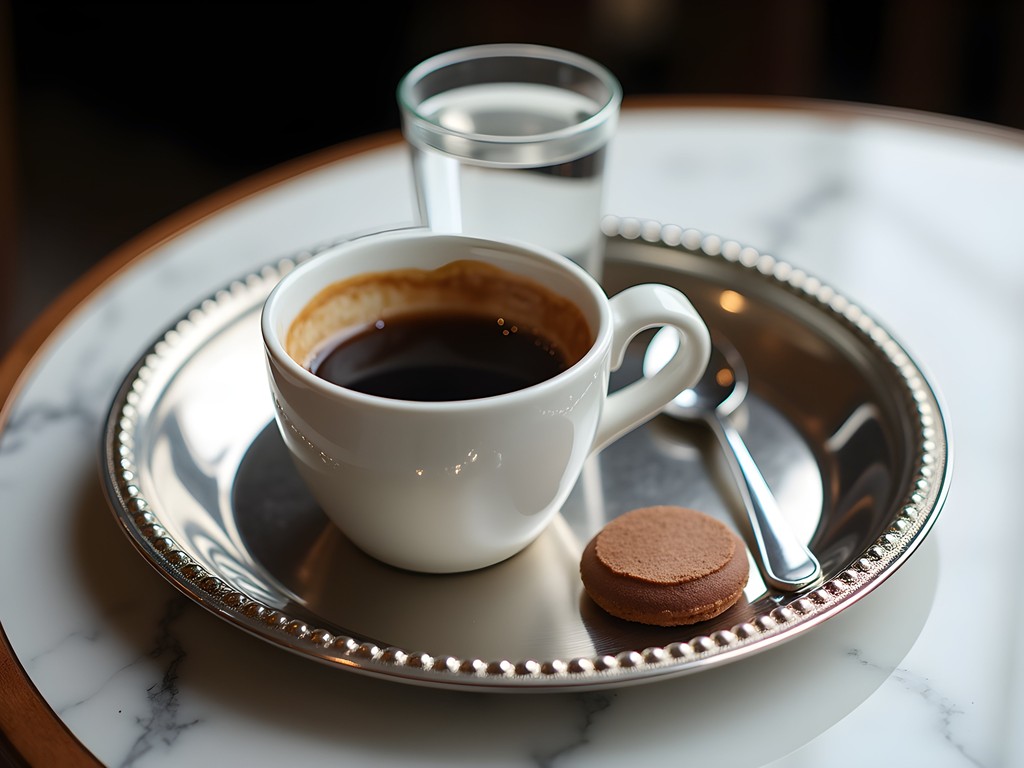
💡 Pro Tips
- Learn the phrase 'Einen Melange, bitte' (A melange, please) — it's the most typical Viennese coffee order and marks you as someone in the know
- Never rush the waiter — the pace of service is deliberately unhurried, reflecting the café's function as a place where time slows down
- Tipping is customary but modest — simply round up the bill by a euro or two and say 'Stimmt so' (keep the change)
Final Thoughts
As I sit in Café Central on my final evening, watching the pianist coax melancholy Schubert from the grand piano, I'm reminded that Vienna's coffeehouses are more than mere establishments—they are cultural institutions that have weathered revolutions, wars, and the relentless march of modernization. In a world increasingly defined by digital connectivity and fleeting interactions, these spaces offer something profoundly countercultural: an invitation to slowness, to presence, to the art of conversation and contemplation. Whether you come to Vienna for a weekend or a lifetime, its café culture offers a portal to a different way of experiencing time and togetherness. So bring your partner, order a Melange, and allow yourself to be embraced by that untranslatable quality of Gemütlichkeit that has sustained Viennese souls for centuries. The coffee will eventually cool, but the memories you create in these hallowed halls will warm you long after you've returned home.
✨ Key Takeaways
- Vienna's historic cafés offer couples a unique blend of privacy and public engagement perfect for meaningful connection
- Understanding coffee terminology and café etiquette enhances your experience and marks you as a respectful visitor
- The autumn season brings special seasonal offerings and fewer crowds than summer months
📋 Practical Information
Best Time to Visit
September to November
Budget Estimate
€30-50 per day for coffee and pastries for two people
Recommended Duration
Weekend (2-3 days)
Difficulty Level
Beginner
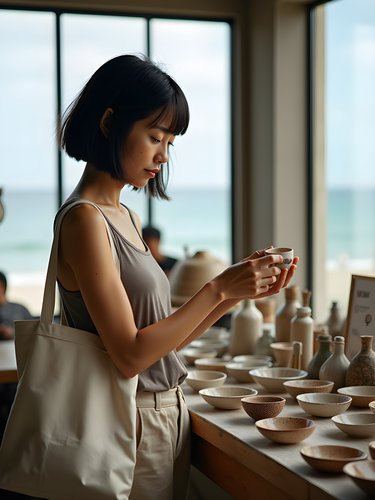
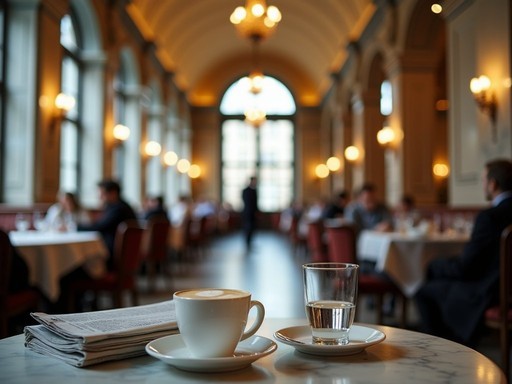
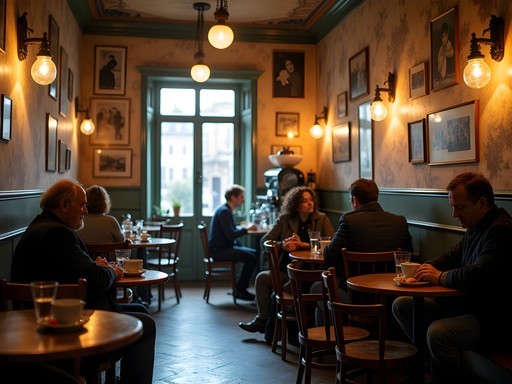
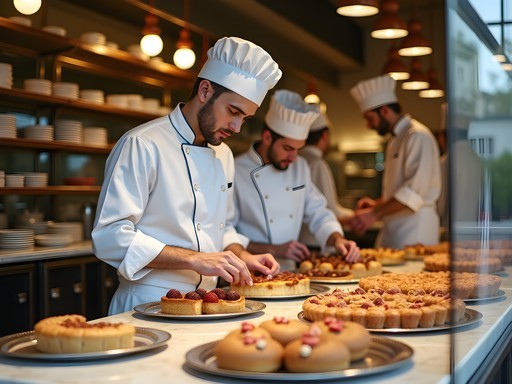
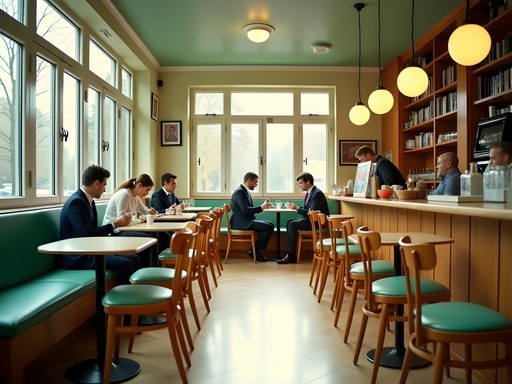
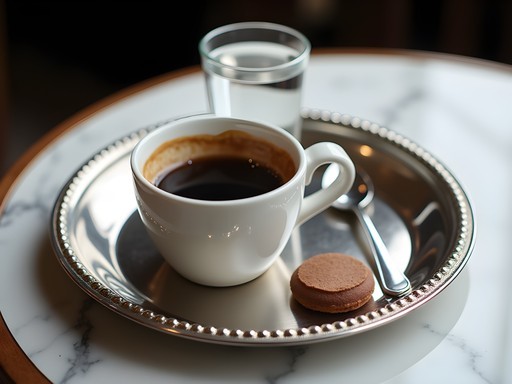


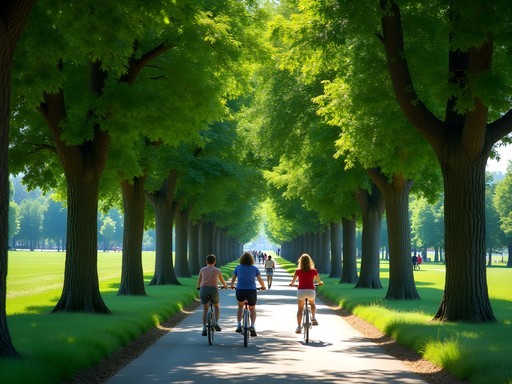
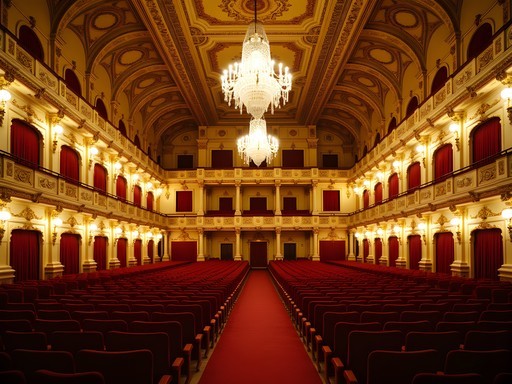
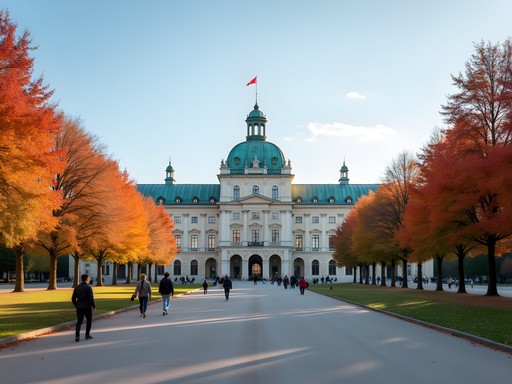
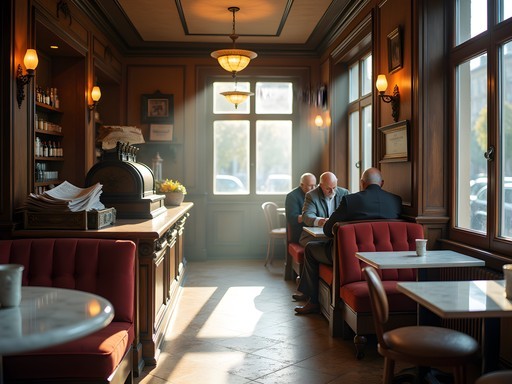
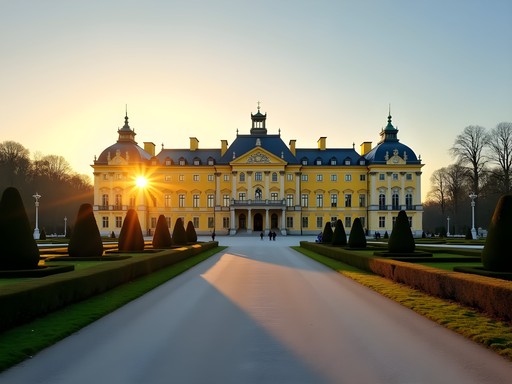

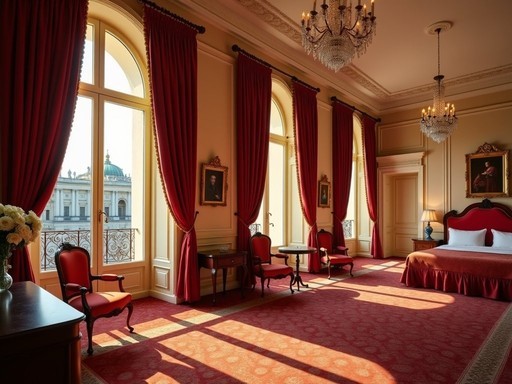

Comments
wilddiver
Heading to Vienna next month! Any recommendations for cafés that are less touristy but still have that authentic experience? Also, is it true you should order a glass of water with your coffee? I've heard they always serve it that way.
Audrey Yamamoto
Yes! The glass of water is traditional - it's to cleanse your palate before enjoying the coffee. For less touristy spots, try Café Korb (mentioned in the post) and also Café Bräunerhof in the 1st district. Both have more locals than tourists but still that wonderful historic atmosphere!
wilddiver
Perfect, thank you! Adding those to my list. Can't wait to experience this coffee culture firsthand.
mountainstar
Just want to second Café Bräunerhof - it was my absolute favorite! Much quieter than the big names but so authentic. Try their apple strudel!
Frank Garcia
Great breakdown of Vienna's café scene! I've analyzed the cost-effectiveness of these historic cafés versus modern chains during my backpacking trip last year. While places like Central and Sacher charge premium prices (€7-8 for a Melange and cake), the experience is incomparable to anywhere else. The coffee subscription in my Vienna guide saved me about 30% at participating cafés. One suggestion: Café Diglas deserves a mention - it's less crowded than the famous spots but maintains that authentic Viennese coffeehouse atmosphere. Their Kaiserschmarrn is exceptional. Did you notice how each café has its own unique coffee blend? Fascinating cultural aspect worth exploring.
wilddiver
Frank - is Café Diglas the one near Stephansplatz? I think I walked by it but wasn't sure if it was worth going in with so many options around.
Frank Garcia
Yes, that's the one! Definitely worth a visit - much more local crowd and the interior is just as grand as the more famous spots. Their house blend is particularly good.
mountainstar
I was in Vienna last winter and Café Central was absolutely magical! The piano music, the vaulted ceilings, and that apple strudel... heaven! We actually went back three times during our stay. The line can be crazy though - definitely go early morning or late afternoon. Café Hawelka had such a different vibe, much more intimate. Did you try their famous Buchteln? They only serve them after 8pm and they're worth waiting for!
Audrey Yamamoto
Thanks mountainstar! I did try the Buchteln at Hawelka - absolutely divine! You're right about the lines at Café Central. I found going around 3pm on weekdays was the sweet spot.
mountainstar
Good tip on the 3pm timing! I'll remember that for next time. Did you have a favorite of all the cafés you visited?
Audrey Yamamoto
Tough choice! Café Sperl probably captured my heart - less touristy than Central but still has that perfect old-world charm. The afternoon light through those windows is photographer's dream.
CoffeeConnoisseur
Pro tip for first-timers: don't rush! The whole point of Viennese coffee culture is to linger for hours with one coffee. Waiters won't bring your bill until you ask for it. Also, try the Melange - it's like a cappuccino but uniquely Viennese!
NewbieTraveler
Is it rude to just order coffee without cake? The pastries look amazing but I'm watching my diet!
CoffeeConnoisseur
Not at all! Many locals just order coffee. But fair warning - the pastry displays are seriously tempting! 😄
EuropeanExplorer
That photo of Café Central is absolutely stunning! The architecture is breathtaking.
TravelBug_Jamie
Going to Vienna next week! Any recommendations for less touristy cafés where locals actually go?
skywanderer
Try Café Korb! It's much more local and the basement has this cool retro vibe. Their apple strudel is amazing too.
TravelBug_Jamie
Thanks for the tip! Adding it to my list right now.
ViennaLover
Love this post! Café Hawelka is my absolute favorite spot in Vienna!
Savannah Torres
Audrey, your post brought back so many wonderful memories of our family trip to Vienna last winter! My kids still talk about the hot chocolate at Café Sacher - they felt like little royalty sitting in those plush velvet seats. For families traveling to Vienna, I'd recommend visiting cafés during off-peak hours (early morning or late afternoon). Many of these historic places are surprisingly welcoming to children, and the staff at Café Central even brought my daughter extra whipped cream for her melange when she spilled hers. Also, don't miss Café Prückel - it has that perfect mid-century vibe and feels less touristy. We found a little Vienna café guide that was perfect for planning which cafés to visit with kids in tow. Wonderful post!
CoffeeLover22
Did you find the cafés accommodating for children? Planning a trip with my 7-year-old next month and wondering if these fancy places are kid-friendly.
Savannah Torres
Surprisingly yes! Just avoid the super busy lunch hours. Café Demel has amazing hot chocolate that kids love, and Café Prückel was very relaxed about our kids. Just prep them about indoor voices beforehand 😊
skywanderer
Just got back from Vienna last month and the coffee culture there is absolutely magical! Café Central was packed with tourists but still worth it for that incredible vaulted ceiling. We found Café Sperl to be less crowded and more authentic. The Einspänner at Café Hawelka literally changed my life - coffee topped with whipped cream that you drink through the cream... heaven! Anyone else try the apple strudel at Demel? I'm still dreaming about it.
Savannah Torres
The apple strudel at Demel is incredible! But next time, try their Sachertorte too - it's actually my favorite version in the city (don't tell Café Sacher I said that! 😉)
skywanderer
Ooh, I'll definitely try the Sachertorte next time! I was too full from all the pastries to fit it in on this trip!
sunnyace
Those cakes look amazing! Definitely putting Café Demel on my list!
Venture X
Premium card with 2X miles, $300 travel credit, Priority Pass